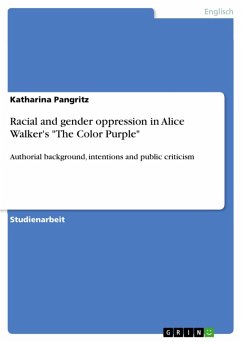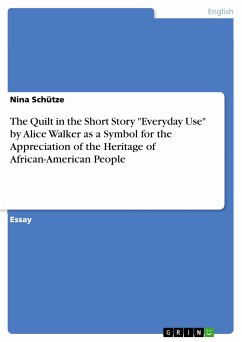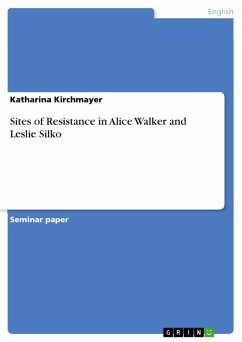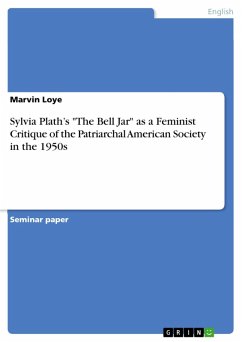Seminar paper from the year 2003 in the subject American Studies - Literature, grade: 1,7, Humboldt-University of Berlin, language: English, abstract: The intention of this paper is to show and to analyze Walker's often underestimated critique of racial relations in the novel The Color Purple. This analysis will be based primarily on a closer look at Nettie's letters - the narrative's embedded text that has been neglected by most of the early critical works on the novel. It will be shown that one of the novel's central questions is: Is a progress in race relations possible? And furthermore, that Walker's answer to that question is not at all as fairy-tale-like as many critics have claimed the ending of the novel to be. The main sources for my line of argumentation will be, of course, the novel The Color Purple 1 itself, Alice Walker's essay collection In Search Of Our Mothers' Gardens, and Linda Selzer's essay Race and Domesticity in The Color Purple.
Dieser Download kann aus rechtlichen Gründen nur mit Rechnungsadresse in A, B, BG, CY, CZ, D, DK, EW, E, FIN, F, GR, HR, H, IRL, I, LT, L, LR, M, NL, PL, P, R, S, SLO, SK ausgeliefert werden.









